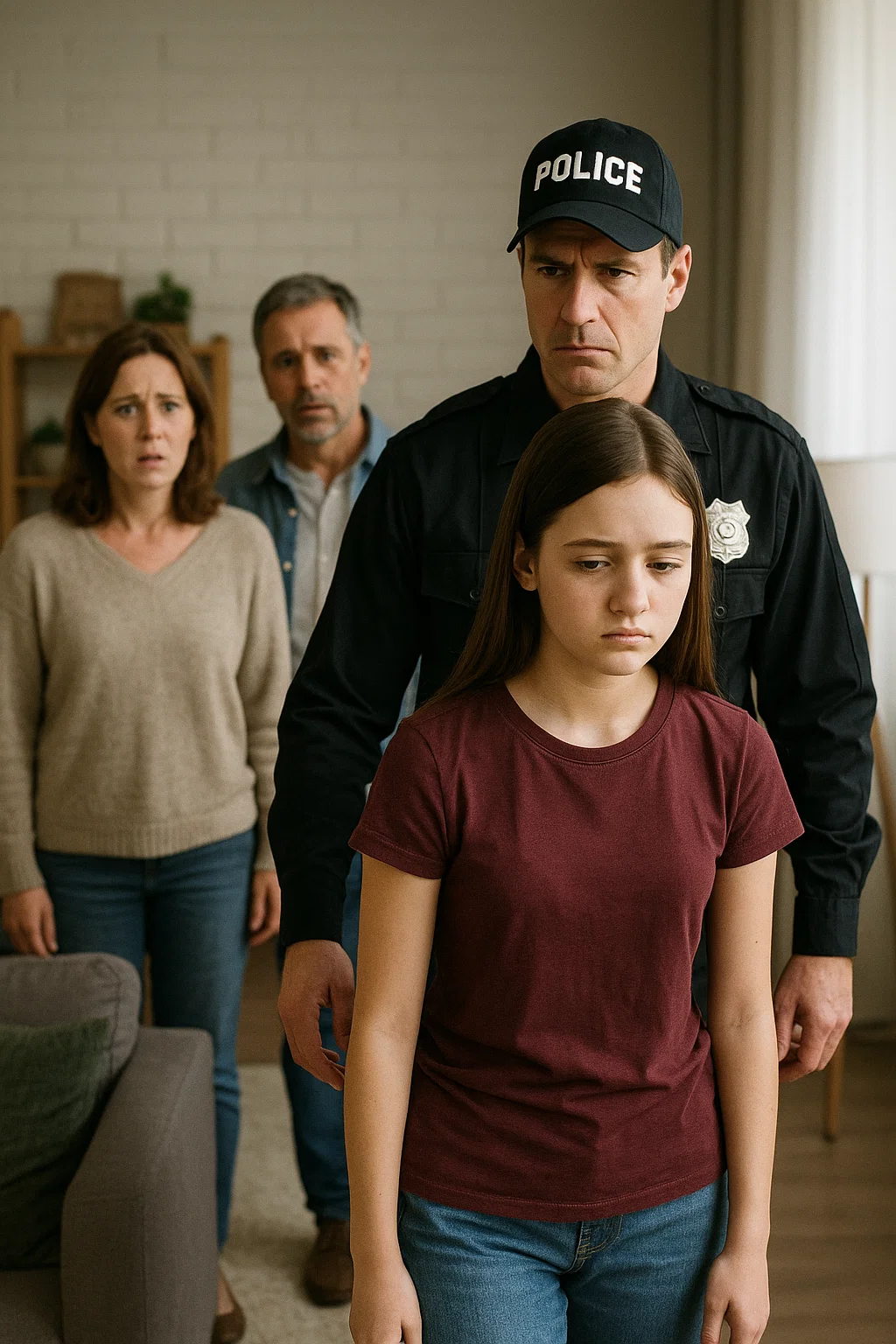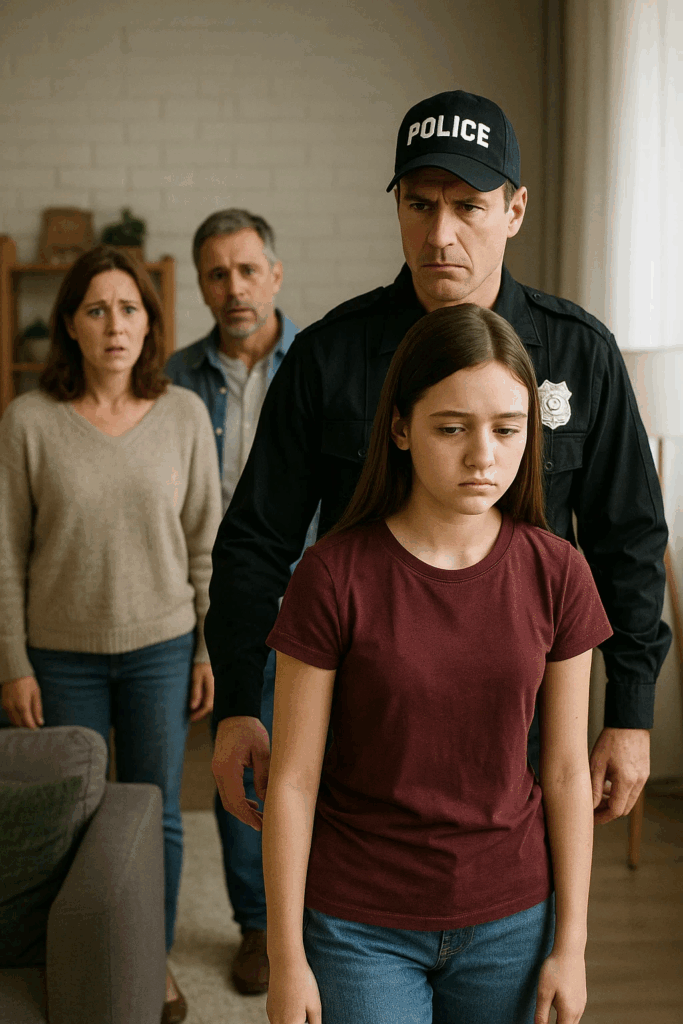They took my sister on a family trip and left me behind. Later, she caused chaos, got into legal trouble, and now they finally see her for who she truly is.
I have a younger sister, Lisa, who I honestly believe is the embodiment of malice. My parents, however, have always seen her as their “miracle child.” My mother had suffered a miscarriage before Lisa was born, and the grief was deep. When Lisa came along a few years later, she was seen as a blessing—a beacon of hope—lavished with an affection I never received.
As kids, I adored her, but over time I discovered she had a knack for manipulation. On my birthday, I was given a treasured family heirloom—a pocket watch. Lisa’s jealousy was immediate. That night, knowing I was terrified of spiders, she placed one inside my pillowcase. I woke up screaming, and she feigned concern in front of everyone, only to grin at me later and whisper, “That’ll teach you a lesson.”
I tried to tell my parents about her behavior over the years, but they brushed it off as childish antics. I was the one labeled a troublemaker. Eventually, I stopped speaking up, threw myself into school, got into a good college, and left home at the first chance. Lisa, with grades too low for university, stayed home and enrolled in community college.
By 23, I was living in San Francisco, working for a multinational corporation. Then my father had a near-fatal heart attack. When my mother called, I flew home immediately. His brush with death made him want to spend more time with us, and he suggested a family vacation. I hesitated but agreed for his sake. Lisa wasn’t thrilled, but she went along.
I arranged time off work and was genuinely looking forward to it. But at the airport, I found my ticket had been mysteriously canceled. My father swore he had booked and paid for all four tickets. Strangely, only mine had been voided. I glanced at Lisa—she was wearing that smug, victorious smile she always had after pulling something off.
I accused her, but my mother instantly shot me down. “Your sister would never do that. Stop being jealous. It’s just an airline mistake.” My father agreed. There were no other flights that day, and they began hinting I should let them go without me. Realizing they were fine with it, I told them to go ahead. I left the airport and flew back to San Francisco, unwilling to spend another minute at our family home.
Days later, I woke up to multiple missed calls from my mother. Panicked about my father’s health, I called back. She was frantic—his heart medication had been disappearing. They searched everywhere in their hotel room. Then my mother, while borrowing sunscreen from Lisa’s room, found all the missing pills stashed in her bedside table.

It hit them: their miracle child had been putting my father’s life in danger. I told them not to confront her until they got home, but they must have ignored that advice. That night, I got a call—Lisa was in jail.
When confronted, she had exploded—throwing things, screaming at my father for inviting me on the trip. She threatened that if they stayed in contact with me, she would “teach them a lesson.” The fight escalated until hotel staff called the police. She insulted the officers and was taken into custody.
After her release, my parents discovered their passports and wallets were missing—Lisa had likely hidden or discarded them. They were stranded until replacements could be arranged. That’s when they truly saw her for who she was.
Once home, they told Lisa she had to move out. This triggered another screaming match. She claimed she didn’t want to “share” them with me and threatened to accuse them publicly of child neglect—something that terrified them as respected doctors. Her behavior escalated—smashing dishes, stealing keys, throwing tantrums. One night, she attacked them with a knife. They called the police, and she was arrested for assault.
My parents started eviction proceedings. They bailed her out only to serve her notice—she had to be gone within a week.
They came to stay with me in San Francisco, visibly shaken and full of regret. My father admitted he should have listened to me years ago. My mother tearfully apologized for dismissing my concerns. I told them it would take time to rebuild trust.
We discussed Lisa’s future. They wanted her to get a mental health evaluation, but I had no interest in contacting her—she still held a grudge.
While they were with me, Lisa flooded their phones with messages—first begging to come back, then raging, then threatening. Their lawyer advised no response.
The night before the eviction, my father called. Lisa had left—packing what she could into a van with an unknown man. No note, no forwarding address.
Two weeks later, they got a letter from her—full of demands for money, a car, and a ban on me entering their house, along with threats of “exposing” them. They handed it to their lawyer and blocked her number.
We’ve had many talks since—about the limits of family loyalty and the fact that loving someone doesn’t mean letting them hurt you. My parents are considering selling the family home and moving closer to me, both for a fresh start and to create distance from Lisa.
I don’t know if she’ll ever change. Honestly, even if she did, I wouldn’t want her back in my life. I’ve built something stable—friends, a career, peace. Inviting her back would be like opening the door to a hurricane.
So I choose peace.
One night on my balcony, my dad said, “I used to think family was unconditional. But maybe it’s conditional on safety. On respect.”
“That’s not a maybe,” I told him. “That’s exactly it.”
Lisa’s shadow is still there—but smaller now. And each day, it fades a little more.

